Breaking News


Popular News

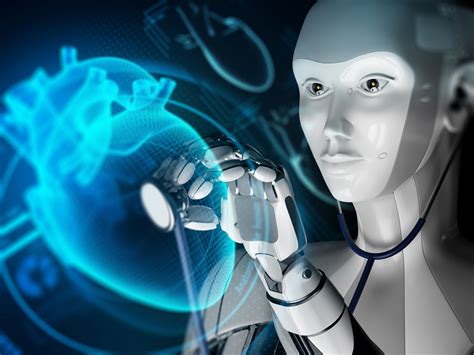
Discover the latest in AI robotics: integrating AI, enhancing human-robot interaction, advancements in autonomous systems, AI-powered sensors, and ethical considerations. Exploring impact, challenges, and opportunities.As the field of artificial intelligence (AI) continues to evolve, the integration of AI in robotics has become a topic of great interest and importance. The development of AI-powered robots is revolutionizing various industries and sectors, with potential impacts on manufacturing, healthcare, and even daily life. In this blog post, we will explore the future of artificial intelligence in robotics, delving into the advancements in autonomous systems, the potential for enhancing human-robot interaction, and the ethical considerations that come with this technological evolution. We will also discuss the challenges and opportunities that AI in robotics presents, as well as the impact of AI-powered sensor technology on the industry. Join us as we navigate through the exciting and complex world of AI in robotics and consider the implications it has for the future.
Contents
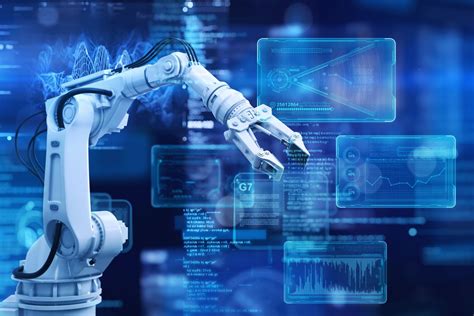
Artificial intelligence (AI) has rapidly become an integral part of robotics, revolutionizing the way robots operate and interact with humans. With the integration of AI, robots are capable of learning from their environment, making decisions, and adapting to new situations in real-time. This has led to significant advancements in the field of robotics, as AI-powered robots are now able to perform complex tasks with precision and efficiency.
One of the key ways AI has been integrated into robotics is through machine learning algorithms, which enable robots to analyze and interpret data, recognize patterns, and continuously improve their performance over time. This has resulted in robots that can autonomously navigate through dynamic environments, collaborate with humans, and execute intricate tasks with minimal human intervention.
Furthermore, AI has enhanced human-robot interaction by enabling robots to understand and respond to human gestures, emotions, and speech. This has paved the way for the development of socially intelligent robots that can effectively communicate and collaborate with humans in various settings, such as healthcare, manufacturing, and service industries.
In addition, AI-powered robotics has led to the creation of intelligent sensor technologies that enable robots to perceive and interpret their surroundings with exceptional accuracy. These sensors, coupled with AI algorithms, have enabled robots to detect and avoid obstacles, manipulate objects, and operate in unstructured environments with unparalleled precision and dexterity.
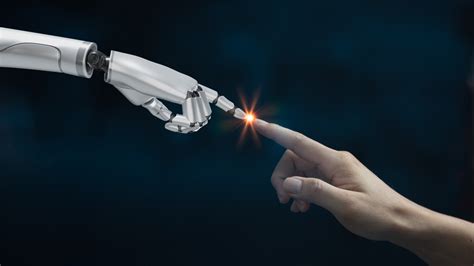
In the ever-evolving world of technology, the integration of Artificial Intelligence (AI) in robotics has brought about significant advancements, with one of the most crucial being the enhancement of human-robot interaction. This development is reshaping the way humans and robots collaborate and work together in various industries and settings.
With the advancements in AI, robots are now equipped with sophisticated algorithms and capabilities that enable them to understand and respond to human gestures, emotions, and commands. This has paved the way for more natural and seamless interactions between humans and robots, ultimately leading to improved efficiency and productivity in tasks that involve collaboration between the two entities.
One of the key elements that has contributed to enhancing human-robot interaction is the use of AI-powered sensor technology. These sensors allow robots to perceive their environment and the people around them, enabling them to adapt to different situations and respond accordingly. As a result, the potential for robots to work alongside humans in dynamic and unpredictable environments has significantly increased.
Furthermore, the ethical considerations in AI robotics are paramount in ensuring that human-robot interaction remains safe, respectful, and beneficial for all parties involved. As the capabilities of robots continue to advance, it becomes increasingly important to establish and adhere to ethical guidelines and regulations that govern their interactions with humans.
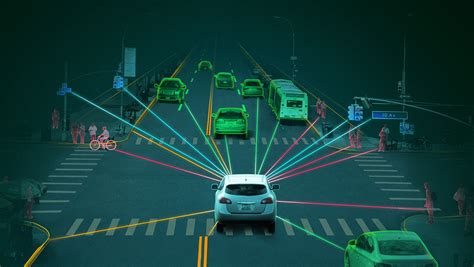
The Future of Artificial Intelligence in Robotics
Advancements in Autonomous Systems
The integration of artificial intelligence (AI) in robotics has led to significant advancements in autonomous systems. AI-powered robots are now capable of performing complex tasks without human intervention, thanks to the development of advanced algorithms and sensor technologies.
Advancements in autonomous systems have revolutionized industries such as manufacturing, healthcare, and transportation. These robots are equipped with AI-powered sensor technology that enables them to navigate their environment, make decisions, and adapt to changing conditions in real-time.
AI-powered robots have the potential to improve efficiency, productivity, and safety in various industries. These advancements are reshaping the future of work, as autonomous systems take on repetitive and dangerous tasks, freeing up humans to focus on more complex and creative endeavors.
However, the rapid advancement of autonomous systems also raises ethical considerations. As these robots become more capable and autonomous, questions about their impact on employment, privacy, and safety need to be addressed. It is crucial to ensure that the development and deployment of AI-powered robots are done in a responsible and ethical manner.
| Challenges | Opportunities |
|---|---|
|
|

One of the most exciting developments in the field of robotics is the integration of AI-powered sensor technology. These advanced sensors are revolutionizing the way robots interact with their environment, allowing them to perceive and understand the world around them in a more sophisticated and nuanced way than ever before.
With AI-powered sensor technology, robots are able to collect and process vast amounts of data from their surroundings, enabling them to make more informed decisions and adapt to changing conditions in real-time. This technology is essential for robots to operate autonomously and effectively in a wide range of environments, from factory floors to outdoor spaces.
One key advantage of AI-powered sensor technology is its ability to enhance the safety and efficiency of robotic systems. By providing robots with the ability to perceive and respond to their environment in a more intelligent and predictive manner, these sensors are helping to reduce the risk of accidents and improve overall performance.
Furthermore, AI-powered sensor technology is also opening up new opportunities for robots to collaborate and interact with humans in a more natural and intuitive way. Whether it’s in the form of collaborative robots working alongside human workers in a manufacturing setting, or robots providing assistance in healthcare and other service industries, these advanced sensors are helping to bridge the gap between humans and machines.

The Future of Artificial Intelligence in Robotics
Impact on Manufacturing and Industry
In today’s rapidly advancing world, the integration of artificial intelligence (AI) in robotics has had a profound impact on the manufacturing and industry sector. With the use of AI-powered sensors and advancements in autonomous systems, robots have become increasingly efficient and precise in performing tasks that were once thought to be exclusively human. This has led to a significant increase in productivity and cost-effectiveness in manufacturing processes.
Furthermore, the enhanced human-robot interaction made possible by AI has allowed for a more seamless integration of robotics into the manufacturing industry. Robots are now capable of working alongside human workers, collaborating on tasks and learning from their human counterparts. This has not only improved the overall efficiency of manufacturing processes but has also opened up opportunities for new and innovative ways of approaching manufacturing and industry.
| Benefits of AI in Manufacturing and Industry: |
|---|
|
However, as with any technological advancement, there are also ethical considerations to take into account. The potential displacement of human workers by AI-powered robotics raises concerns about job security and the impact on the workforce. It is essential for manufacturers and industry leaders to carefully navigate these issues and ensure that the introduction of AI in robotics is done in a responsible and inclusive manner.
Despite the challenges, the overall impact of AI in robotics on manufacturing and industry is undeniably transformative. As AI continues to advance, we can expect to see even greater efficiencies, new opportunities for innovation, and a reimagining of the role of robotics in the manufacturing sector.
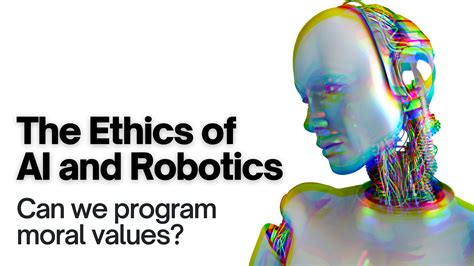
As technology continues to advance at a rapid pace, the integration of Artificial Intelligence (AI) in robotics presents a number of ethical considerations that need to be carefully addressed. With the potential for AI to take on increasingly complex tasks and decision-making processes, it is important to consider the ethical implications of these developments.
One of the primary ethical concerns surrounding AI in robotics is the issue of autonomy. As AI becomes more advanced, robots are gaining the ability to make decisions and act independently of human control. This raises questions about who should be held responsible for the actions of autonomous robots, especially in cases where their decisions result in harm or damage.
Another ethical consideration in AI robotics is the potential for bias and discrimination in the decision-making processes of AI systems. If these systems are not properly trained and programmed, they may inadvertently perpetuate existing biases and inequalities, leading to unjust outcomes.
Furthermore, the use of AI in robotics raises privacy and security concerns. As AI-powered robots become more integrated into everyday life, there is a risk of sensitive personal information being compromised or misused. Additionally, there is a need to ensure that AI systems are secure from exploitation and hacking, which could potentially result in serious consequences.

The integration of AI in robotics presents a myriad of challenges and opportunities for the future. The rapid advancement of technology in this field has the potential to revolutionize industries and improve the quality of life for individuals. However, with these advancements come ethical considerations and the need for careful navigation to ensure that the potential pitfalls are mitigated.
Opportunities in this field include the ability to enhance productivity and efficiency in various industries. AI-powered robotics can take on tasks that are repetitive or dangerous for humans, freeing up valuable time and resources. Additionally, the incorporation of AI in robotics can lead to advancements in autonomous systems, allowing for increased autonomy and decision-making capabilities in various applications.
On the other hand, Challenges such as ethical considerations arise in the development and implementation of AI in robotics. There is a need for careful consideration of the impact on human-robot interaction and the potential displacement of human workers in various industries. Furthermore, the potential for AI-powered sensor technology to be exploited for malicious purposes poses a significant challenge in maintaining security and privacy.
In conclusion, the integration of AI in robotics presents both challenges and opportunities for the future. It is imperative to navigate these advancements with careful consideration of ethical implications and the potential impact on various industries and human society as a whole.

What is the role of AI in robotics?
AI in robotics allows machines to perform tasks that require human-like intelligence, such as decision making, learning, and problem-solving.
What are some current applications of AI in robotics?
Some current applications include autonomous vehicles, manufacturing robots, healthcare assistance robots, and drones.
How is AI improving robotics technology?
AI is improving robotics technology by enabling robots to adapt to changing environments, make real-time decisions, and learn from experience.
What are the potential future advancements in AI and robotics?
Potential future advancements include more sophisticated human-robot interaction, advanced autonomous robots, and AI-driven personalized robotics solutions.
What are some challenges of integrating AI into robotics?
Challenges include ethical considerations, safety concerns, and the need for continuous learning and adaptation of AI algorithms.
How can AI and robotics work together to benefit society?
AI and robotics can work together to improve efficiency in various industries, address labor shortages, enhance healthcare, and assist with disaster response.
What role will AI and robotics play in the future workforce?
AI and robotics are expected to automate repetitive tasks, create new job opportunities in robot maintenance and programming, and fundamentally change the nature of work.